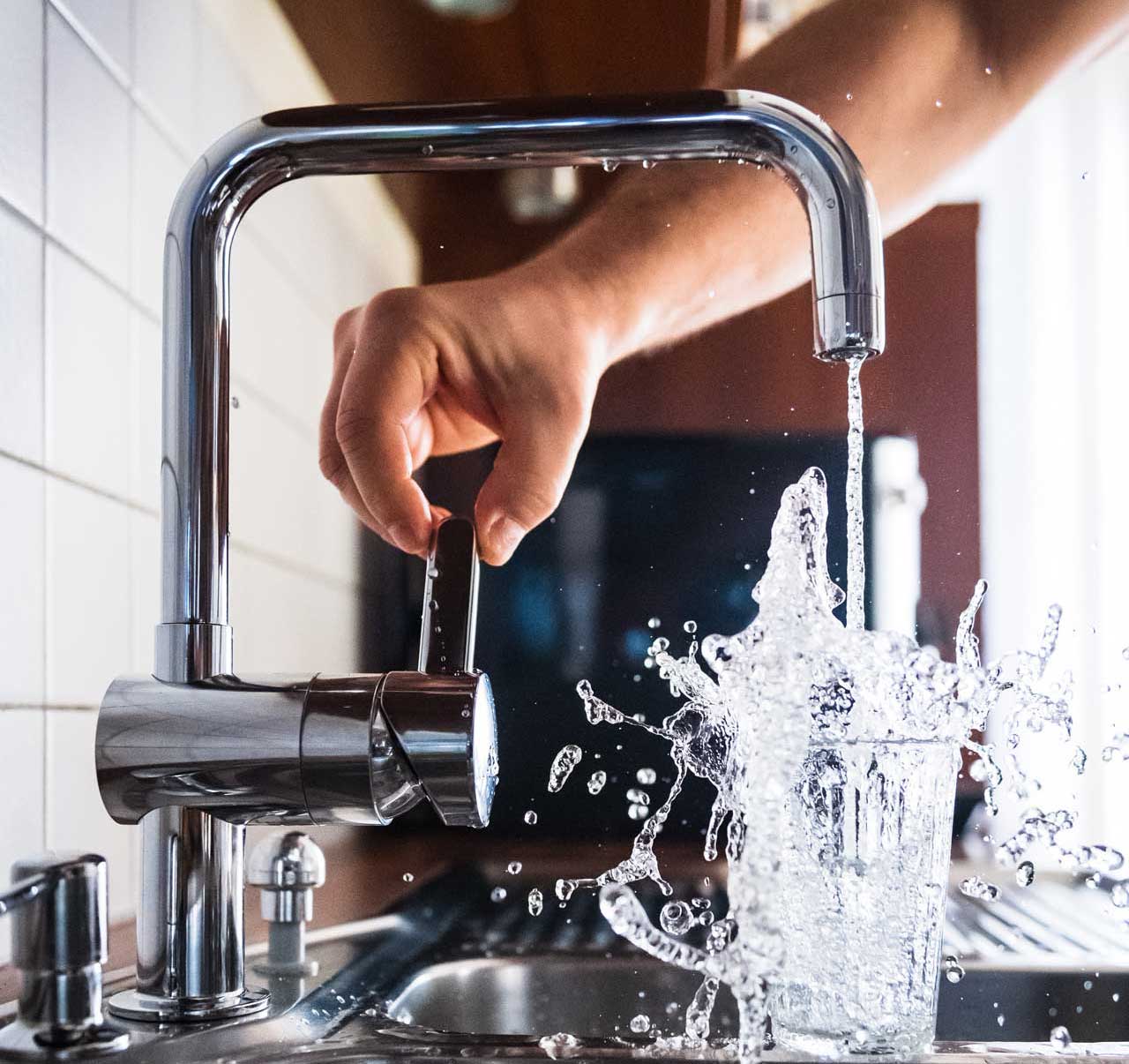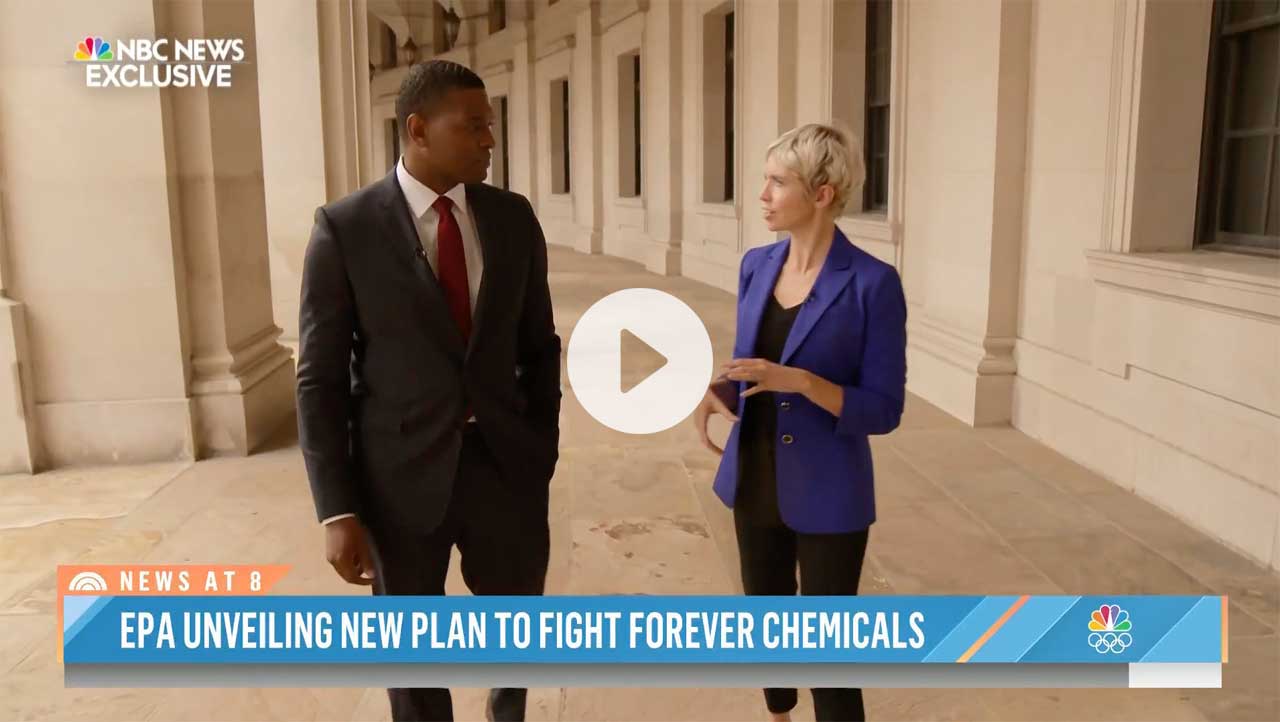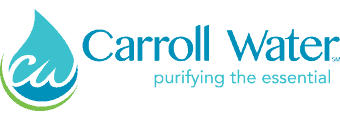In recent years the growing health concern surrounding PFAS (perfluoroalkyl and polyfluoroalkyl), or “forever chemicals” in drinking water sources have dominated the media and caught the attention of so many homeowners. PFAS are a group of synthetically made chemicals known collectively as “forever chemicals” due to their resilience and inability to break down in the environment or body. Originally developed for industrial applications like firefighting foams, food packaging, adhesives, and fabric waterproofing these chemical compounds have been around since the 1940s. Today, over 4,000 of the chemicals can still be found leaching into the ground and public drinking water sources.

At Carroll Water, we’ve seen an influx in customers looking to understand if PFAS are found in their local water supply. This article shares the latest insights from our water experts who help homeowners better understand water impurity issues through research and advice on treating the water in their homes.
How Is PFAS Affecting the Mid-Atlantic Region?
PFAS (PFOA and PFOS) are found in more than 2,300 locations across the country making their way into local water supplies, according to the Environmental Working Group, a nonprofit advocacy group. Learning more about your local area is key to understanding if your home water supply is affected. Explore PFAS in the news in Maryland, Virginia, and Pennsylvania, and refer to your state website for more information:
PFAS in Maryland
The Maryland Daily Record reported recently, “PG County sues 3M, DuPont over ‘forever chemicals’ in waterways.” The lawsuit stems from the mishandling of PFAS “that have been found in ‘alarming concentrations’ in bodies of water in Prince George’s County, MD, including recently in the tissue of fish taken from Piscataway Creek.” Additionally, Maryland State Legislators plan to introduce a bill in 2022 banning “forever chemicals” from use and disposal in Maryland. More information on PFAS in Maryland can be found on Maryland.gov.
PFAS in Virginia
The Virginia Department of Health completed a limited study of PFAS and reported, “The study tested samples from 45 waterworks for 25 different types of PFAS, and indicates that PFAS are present in drinking water from the Potomac River and Occoquan Reservoir, two major sources for waterworks in Northern Virginia. You can access more information from the Virginia Department of Health.
PFAS in Pennsylvania
Recently, The Morning Call reported chemicals found in firefighting foam leached into the water system from the Emmaus Fire Department training facility in Pennsylvania. The Department of Environmental Protection provides a list by county, along with the results of a Pennsylvania statewide sampling.
What Is Being Done to Address the Health Effects of PFAS?
People who drink or shower with water contaminated with PFAS may have more health problems than those who don’t. While currently there are no studies that have clearly shown the impact of PFAS exposure, there are indications that it may be linked to chronic issues like high cholesterol, a suppressed immune system, infertility, some cancers, and reduced efficacy of vaccines, according to the EPA.
In October 2021, The Biden Administration announced an updated government-wide approach that launched the EPA’s PFAS Roadmap, “a comprehensive strategy that outlines concrete actions over the next three years, including steps to control PFAS at its sources, hold polluters accountable, ensure science-based decision making, and address the impacts on disadvantaged communities.”

Watch NBC News report: Toxic ‘forever chemicals’ are everywhere. The EPA has a new plan to crack down
The FDA does not currently regulate PFAS in food packaging or food contact substances but encourages manufacturers to use safer alternatives when feasible. Many large manufacturers have eliminated these synthetic chemicals dating back to the early 2000s.
What Can You Do to Make Sure Your Water is Safe to Drink?
It is widely understood that PFAS will continue making its way into our water sources. So for those homeowners wondering, “will boiling household water remove PFAS chemicals?”, the answer is “No”, It doesn’t work. In fact, boiling the water only serves to exacerbate the level of PFAS in your water. During the boiling process, heat will evaporate the water and cause the chemicals to become concentrated at an even higher level, making it even more dangerous to drink.
There are three effective ways to filter or condition your water to give you the peace of mind you’re looking for in your home water supply:
1. Reverse Osmosis (RO)
Reverse osmosis (RO) drinking water systems provide high-quality water for drinking or cooking. Treated at the Point-of-Use, such as your kitchen sink, refrigerator, or pot filler it follows this process:
- Water is directed through a carbon prefilter for filtration to remove sediment, chlorine taste and odor, and particulate matter.
- Water is then forced by pressure through a semipermeable membrane where a high percentage of the dissolved solids are rejected and flushed to the drain.
- Filtered water is then reserved in a storage tank until the faucet is turned on.
- The EcoWater HERO 385 Reverse Osmosis Drinking Water System >
- 50-gallon per day production rate
- More cost-effective than most filters
- Low water waste 1-gallon:1-gallon ratio of “product water” to “rejected water” compared to a 3-gallon:1-gallon ratio by other systems.
- Fewer mechanical parts mean lower maintenance
- The patented HydroLink Plus® Wi-Fi enabled technology allows for the remote display of valuable product performance, alerts, water usage, and filter life
- A high percentage of the dissolved solids (including PFAS/PFOA, Ammonium, Arsenic, Chromium, VOC’s and Nitrates along with several other contaminants) are rejected and flushed to the drain.
- This system is tested and certified to NSF/ANSI Standard 58 by NSF International.
- 5-year warranty on most parts; 10 years on the storage tank
2. Granular Activated Carbon (GAC)
Granular activated carbon (GAC) systems can remove chemicals, especially organic chemicals from water can be used to treat problem water with objectionable tastes and odors. These systems can be 100% effective for filtration but may fluctuate slightly during peak water use. Typically they work as follows:
- During normal operation, water flows through the GAC where sediment, chlorine taste, and other contaminants that adversely affect taste and odor are reduced.
- Depending on water usage and the number of contaminants in the water, the carbon will need to be exchanged periodically.
- The EcoWater ETF2300 >
- 2 cubic feet of Granular Activated Carbon is encased in our Multi-Wrap Fiberglass Reinforced tank
- HydroLink Plus® WiFi and Smartphone App Monitoring (sends continuous and excessive water use, system error, and service reminder alerts, notifying you of excessive water drain)
- Energy Efficient
- Full one-inch riser for increased flow rates to meet the demands of the household
3. Anion Exchange
Anion exchange water softeners remove Anions (negatively charged ions such as arsenic and nitrates) and exchange them with potassium or sodium ions. It is your best solution to reduce or eliminate nitrates and PFAS and offer a better long-term solution requiring less maintenance. Front-end costs will be higher but the cost to own over time makes this type of system extremely affordable.
- EcoWater 3700 Series Water Conditioner >
- Anion Resin is utilized to remove negatively charged ions such as PFAS and nitrates
- Patented HydroLinkPLus® Wi-Fi enabled technology sends the user a host of important information; excessive water use, water to drain, low salt, etc.
- Multi-Wrap Fiberglass Reinforced Resin Tank provides durability and will not rust or corrode
- Full one-inch riser improves the overall flow rate
- Smart System utilizes a patented algorithm to determine the best and most efficient times to clean itself-saving you money
- Offers the latest treatment technology for water conditioning designed to replace the old-fashioned water softener and provide PFAS free water for your entire home.
How Do I Decide on the Best Option for My Home?
Before you take action to remove impurities from your drinking water and/or household water, we suggest that you work with a water treatment company like Carroll Water to verify which contaminants are present with a free water analysis. As one of the oldest and most experienced full-service water treatment and well-drilling companies in the area, we offer the resources and “know-how” to effectively diagnose your problem and then design a treatment plan that will work for you.
Contact us today to request a water test and discuss with our team how best to reduce contaminant levels in your home drinking water, including providing the best solutions to reduce and even eliminate PFAS entirely.
—
Carroll Water is an authorized EcoWater Systems dealer serving Maryland, Pennsylvania, and Virginia. EcoWater Systems has been making water cleaner and safer for homes since 1925 and was the first water treatment manufacturer to be ISO 9001 certified and offer the HydroLink Plus®, a WiFi app that allows you to monitor your water treatment devices on the go. EcoWater Systems is a member company of The Marmon Group, an international company of over 180 autonomous manufacturing and service companies and a subsidiary of the Berkshire Hathaway Company.


